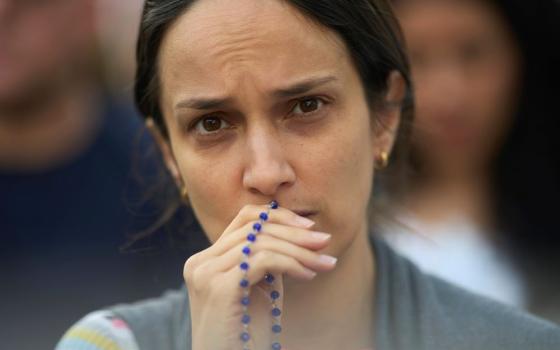Claiming it infringes on the Catholic Church's religious liberty, the Diocese of Greensburg and Bishop Lawrence E. Brandt have filed suit against the federal requirement that most employers cover contraceptives in their employee health plans.
The suit was filed May 27 in the U.S. District Court for the Western District of Pennsylvania.
Under the federal Affordable Care Act, the Department of Health and Human Services issued a mandate directing most employers, including religious employers, to provide employees coverage of contraceptives, sterilization and some abortion-inducing drugs free of charge, even if the employer is morally opposed to such services.
Greensburg's bishop as well as the diocese and its Catholic elementary schools and Catholic Charities agency "must to facilitate health insurance coverage that violates the church's core Catholic beliefs," said a diocesan press release.
The suit was filed on behalf of the Roman Catholic Diocese of Greensburg, Brandt, Catholic Charities of the Diocese of Greensburg and St. John the Evangelist Regional Catholic School in Uniontown.
The regulation goes into effect July 1. Employers who do not comply will face severe fines of up to $100 per affected beneficiary. Such "crippling fines ... could seriously jeopardize how they conduct their ministries," the Greensburg diocesan release said.
The mandate does not include a conscience clause for employers who object to such coverage on moral grounds.
It does include an exemption for some religious employers that fit certain criteria. "Houses of worship," including churches and dioceses, are exempt, but religious institutions within a diocese, such as schools, universities, social service agencies and hospitals are not exempt.
"These institutions are integral to the Catholic mission -- they are the heart of the church -- and they deserve the same exemption as the diocese," the diocese said. "As the U.S. bishops have said, the exemption amounts to an attempt by the government to 'reduce freedom of religion to freedom of worship.'"
For nonexempt employers, the government provides what it calls "an accommodation," requiring these employers to direct a third party to pay for coverage they find objectionable, but Catholic and other entities that have filed lawsuits against the mandate say the accommodation still does not solve their problem over being involved in providing coverage they reject for moral reasons.
Under the accommodation, Catholic Charities and the Catholic elementary schools within the Greensburg Diocese must sign a self-certification form triggering the insurance company that administers their health plan to provide the objectionable coverage to their employees. The form also expressly designates the administrator to provide that coverage.
"Participating in this process and signing this form is material cooperation with evil and violates sincerely held Roman Catholic beliefs," the diocese said.
The law firm of Jones Day of Pittsburgh is representing the plaintiffs pro bono. Jones Day has filed similar suits on behalf of dozens of Catholic entities around the country, including the Pittsburgh and Erie dioceses, all on a pro bono basis.
On Nov. 21, 2013, U.S. District Court Judge Arthur J. Schwab granted the Pittsburgh and Erie dioceses and their related entities a preliminary injunction, barring the government from enforcing or applying the mandate to those dioceses, their related entities and their health insurance plans. On Dec. 20, 2013, Schwab converted that preliminary injunction into a permanent injunction.
Before filing this suit, the Diocese of Greensburg contacted the government's lawyers and asked them to consider expanding Schwab's injunction from the Pittsburgh and Erie suits to apply to the Diocese of Greensburg and its affiliated entities.
"Such an extension is warranted and appropriate, to conserve judicial resources and the resources of the parties," the suit states. But the government "failed to agree to the injunction, thereby necessitating this action to protect the religious liberties of the Diocese of Greensburg and its entities under the Religious Freedom Restoration Act (RFRA) and the U.S. Constitution."
The Diocese of Greensburg was not a party to the earlier suits because its health plan year began six months later than those in the Pittsburgh and Erie dioceses. Several earlier suits challenging a previous version of the HHS mandate were dismissed until the plaintiffs faced imminent risk of harm from its provisions.
"We have no choice but to take this action in order to protect our religious freedom to act in the public square without violating the beliefs of our Catholic faith," Brandt said in a statement.
"This is not a matter of the Catholic Church's trying to force its views on the rest of the country. To the contrary, it is a matter of the federal government trying to force its views on the church," he continued. "In addition, this is not an attempt to overturn health care reform.
"The Catholic bishops have always supported access to health care coverage for everyone," he said, "as long as the conscience rights and religious freedom of people and groups including the Catholic Church are protected."


